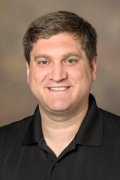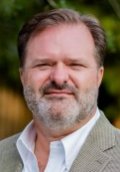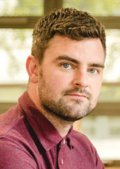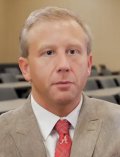

The Behavioral Sleep Medicine Seminar is a weekly lecture series hosted by the Department of Psychiatry. Lectures take place on Thursdays at 9:00 AM and are all online. The seminar is free to attend, and each lecture is eligible for 1 CME credit. CME is provided by The University of Arizona College of Medicine - Tucson. Many recordings of previous lectures are available in our online archive.
Join the List
To join the list, please complete this form. Your email will then be added to the distribution list and you will get emails with announcements, as well as links to upcoming seminars. For more information, or to join the mailing list, contact Denisse Armenta by phone [(520) 626-1737] or email [armentamd@email.arizona.edu]. If you are included on the mailing list, you will be notified of all upcoming lectures and seminars. To obtain your CME credits, you will need to use the CAMS system. Read more about this system.
Archives of Previous Seminars
Many previous lectures are available online. Check out our online programs for the BSMinar archive, and our Essential Topics series of talks on Behavioral Sleep Medicine, Translational Sleep and Circadian Science, Sleep, Sport, and Human Performance, and Sleep and Aging! Request access to any videosin our archive.
Fall 2025 Schedule
 |
August 7, 2025
#269: The Field of Behavioral Sleep Medicine
Michael Grandner (University of Arizona) |
 |
August 14, 2025
#270: Advances in Neuronal Underpinings of Obstructive Sleep Apnea Pathophysiology
Irma Ruklhadze (Albany Medical College) |
 |
August 21, 2025
#271: Endotypes and Sleep Medicine
Emerson Kerr (Nox Medical) |
 |
August 28, 2025
#272: Beyond the Hypnogram: An Introduction to the Microarchitecture of Sleep
Dan Denis (York University, UK) |
 |
September 4, 2025
NO SEMINAR - WORLD SLEEP CONFERENCE |
 |
September 11, 2025
NO SEMINAR - WORLD SLEEP CONFERENCE
|
 |
September 18, 2025
#273: Sleep Health: Pathways to Mental Health
Michael Grandner (University of Arizona) |
 |
September 25, 2025
#274: Leveraging Technology to Add Steps to Stepped Insomnia Care
Anne Germain (Noctem) |
 |
October 2, 2025
#275: Validation of new sleep technologies
Gabriel Natan Pires (Federal University of São Paulo, BRAZIL) |
 |
October 9, 2025
#276: Obstructive Sleep Apnea in Women: A Patient Perspective
Emma Cooksey (Project Sleep) |
 |
October 16, 2025
#277: Deepening the stepped care model of cognitive behavioural therapy for insomnia disorder
Chiara Baglioni (Guglielmo Marconi University, ITALY) |
 |
October 23, 2025
#278: Circadian Rhythmicity in Brain Connectivity
David Negelspach (University of Arizona) |
 |
October 30, 2025
#279: REM, The Final Frontier: Mechanisms Supporting Sleep-Dependent Cognition
Alessandra Shuster (University of Cliafornia, Irvine) |
 |
November 6, 2025
#280: Beyond CBT-I: Considerations of the treatment of sleep disturbance in cancer
Alexandria Muench (University of Pennsylvania) |
 |
November 13, 2025 (Special time: 5:00 PM)
#281: Don't sleep on Esports! Sleep loss and competitive video game performance
Tim David Smithies (Melius Consulting / Central Queensland University, AUSTRALIA) |
 |
November 20, 2025
#282: Sleep as a Lifestyle Health Behavior
Rina Fox (University of Arizona) |
| |
November 27, 2025
NO SEMINAR - THANKSGIVING |
 |
December 4, 2025
#283: Misunderstandings about Melatonin
Michael Gradisar |
 |
December 11, 2025
#284: TBD
Fabian-Xose Fernandez (University of Arizona) |

 |
December 18, 2025
#285: Conducting an Initial Assessment / Intake in a Behavioral Sleep Medicine Clinic
Michael Grandner (University of Arizona) and Leisha Cuddihy (University of Rochester) |
| |
December 25, 2025
NO SEMINAR -- CHRISTMAS DAY |
| |
January 1, 2026
NO SEMINAR - HAPPY NEW YEAR |
 |
January 8, 2026
#286: Updates in Behavioral Treatments for Insomnia in Adolescents
Sarah Honaker (Indiana University) |
 |
January 15, 2026
#287: Behavioral Circadian Medicine in the Digital Era
Philip Cheng (Henry Ford Health) |
 |
January 22, 2026
#288: Sleep in women across the lifespan in relation to pain disorders
Sara Nowakowski (Baylor College of Medicine) |
 |
January 29, 2026
#289: Insomnia after stroke
Maria Gardani (University of Edinborough, UK) |
 |
February 5, 2026
#290: Childhood Insomnia
Melisa Moore |
 |
February 12, 2026
#291: Sleep, nutrition and athlete recovery
Rónán Doherty (Atlantic Technological University, IRELAND) |
 |
February 19, 2026
#292: Paws and Zzzs: How Pets Affect Our Sleep
Salma Patel (University of Arizona) |
| |
February 26, 2026
#293:
TBD |
 |
March 5, 2026
#294: Awake while dreaming: what about insomnia?
Celyne Bastien (Universite Laval, CANADA) |
 |
March 12, 2026
#295: New technologies for understanding sleep and circadian rhythms
Daniel Forger (University of Michigan) |
 |
March 19, 2026
#296:
Jennifer Teske (University of Arizona) |
| |
March 26, 2026
#297:
TBD |
 |
April 2, 2026
#298:
Lauren Hartstein (University of Arizona) |
| |
April 9, 2026
#299:
TBD |
| |
April 16, 2026
#300:
TBD |
| |
April 23, 2026
#301:
TBD |
| |
April 30, 2026
#302:
TBD |
| |
May 7, 2026
#303:
TBD |
 |
May 14, 2026
#304: Behavior Change Theories and Models Relative to Sleep Health
Adam Knowlden (University of Alabama) |
 |
May 21, 2026
#305: Women's Sleep Health
Kat Kennedy (University of Arizona) |
| |
May 28, 2026
#306:
TBD |
 |
June 4, 2026
#307: INSURE Nogales
Dora Valencia (University of Arizona) |
 |
June 11, 2026
#308: Sweet Dreams or Side Effects? The Pharmacist’s View on Sleep Aids Meeting host
Ashley Campbell |
 |
June 18, 2026
NO SEMINAR: SLEEP 2026 CONFERENCE |
 |
June 25, 2026
#309: Bioethics Implications of Behaviroal Sleep Medicine
Michael Grandner (University of Arizona) |
-->
Planning Committee
This activity is overseen by a committe, including:
 |
Dr. Michael Grandner
Associate Professor of Psychiatry |
 |
Dr. Rina Fox
Assistant Professor of Psychology |
 |
Dr. Cristina Garcia
Associate Professor of Psychiatry |
 |
Dr. Daniel Taylor
Professor of Psychology |
 |
Dr. Salma Patel
Assistant Professor of Medicine |
 |
Dr. Michelle Perfect
Associate Professor of Pediatrics |
 |
Dr. Lauren Hartstein
Assistant Professor of Psychiatry |
 |
Denisse Armenta
Administrator |
Resources for Presenters
All presenters must complete the following forms:
Learning Objectives
The specific learning objectives are:
- Gain knowledge of identification and diagnosis of sleep disturbances and disorders.
- Gain knowledge of etiology and pathophysiology of sleep disturbances and disorders.
- Gain knowledge of guideline-based care for sleep disorders.
- Gain knowledge of how to apply basic principles in special populations.
- Gain Knowledge of the rationale underlying common evidence-based treatments for sleep problems.
- Gain Knowledge of the evidence base underlying behavioral sleep medicine strategies.
- Gain Knowledge of the evidence base underlying other sleep disorders treatment modalities.
The specific outcome objectives are:
- Identify and diagnose sleep disturbances and disorders by applying knowledge of etiology, physiology and behaviors underlying sleep and sleep disorders.
- Communicate to patients how sleep problems relate to other domains of health and functioning.
- Apply behavioral principles for treating sleep disorders.
- Incorporate guideline-based treatments for sleep disorders.
- Apply evidence-based strategies for treating sleep problems using nonpharmacologic methods.
- Manage the treatment of sleep disorders using evidence-based strategies.
All Faculty, CME Planning Committee Members, and the CME Office Reviewers have disclosed that they have no financial relationships with commercial interests that would constitute a conflict of interest concerning this CME activity.
The University of Arizona College of Medicine - Tucson is accredited by the Accreditation Council for Continuing Medical Education to provide continuing medical education for physicians.
The University of Arizona College of Medicine - Tucson designates this live activity for a maximum of 1.0 AMA PRA Category 1 Credit(s)™. Physicians should claim only the credit commensurate with the extent of their participation in the activity.
Previous Seminars:
(Request access)
#268: Bioethics Implications of Behavioral Sleep Medicine: Update for 2025 (Michael Grandner, University of Arizona)
#267: The Affiliative Mind After Midnight (Reina Mendoza, Universioty of Arizona)
#266: No Health Without Sleep Health (Pamela Alfonso-Miller, Northumbria University)
#265: The Assessment of Insomnia: Sleep Diaries, Questionnaires, Wearables (Michael Grandner, University of Arizona)
#264: The Science of the Sleep EEG Signal, Part 3: Obtaining and Understanding EEG Signals in Sleep Assessment (Kimberly Cote, Brock University)
#263: The Science of the Sleep EEG Signal, Part 2: Sleep Stages (Kimberly Cote, Brock University)
#262: The Science of the Sleep EEG Signal, Part 1: Signals and Waveforms (Kimberly Cote, Brock University)
#261: The Structured Clinical Interview for Sleep Disorders -Revised (SCISD-R) (Rebecca Campbell, University of Arizona)
#260: Introduction to Using Actigraphy and Other Wearables in Sleep Research (Michael Grandner, University of Arizona)
#259: Shifts in Pre-Sleep Mentation and Extended Amygdala Resting-State Connectivity Following Continuous Theta burst Stimulation of Individuals with Insomnia (Alisa Huskey, University of Arizona)
#258: Recent Developments in Nightmare Research (Kristi Pruiksma, University of Texas)
#257: Mindful of Sleep: The Science and Practice of Mindfulness for Patients and Provider Wellbeing (Daniel Lewin, Sleep Health & Wellness Center)
#256: Rural Sleep Health: An Overview of Opportunities and Challenges (Mairead Moloney, University of Miami)
#255: Lucid Dreaming (Martin Dressler, Donders Institute, NETHERLANDS)
#254: Beyond Rest: Unraveling the Nexus of Sleep, Incarceration, & Life after Release (Johanna Elumn, Yale University)
#253: Insomnia: Treatments in adults, recent developments and future directions (Daniel Taylor, University of Arizona)
#252: Basics of Insomnia: Epidemiology, Assessment and Diagnosis, Models (Daniel Taylor, University of Arizona)
#251: SleepioRx, digital CBT-I, The Journey to US Healthcare Adoption and Reimbursement (Christopher Miller & Alasdair Henry, Sleepio, UK)
#250: Autonomic Activity During Sleep and Neural Activations during fear Conditioning and Extinction among Trauma-exposed Individuals (Edward Pace-Schott, Harvard University)
#249: Understanding Insomnia: Basic Concepts and Clinical Implications (Michael Grandner, University of Arizona)
#248: Eat Better Sleep Better: The science behind the role of diet on sleep (Marie-Pierre St-Onge, Columbia University)
#247: The Mouth After Midnight (Kathryn Kennedy, University of Arizona)
#246: Pathways Linking Childhood and Intergenerational Trauma with Cardiometabolic Health at the US-Mexico Border (Elizabeth Rasmussen, University of Arizona)
#245: Dream Self-Efficacy, Nightmares, and Targeted Dream Incubation (Westley Youngren, University if Missouri, Jansas City)
#244: Sleep Health in Day Labor Workers (Jahanett Ramirez, University of Texas, Austin)
#243: Unpacking the Intersection of Discrimination, Parenting, and Family Health Disparities (Violeta Rodriguez, University of Illinois, Urbana-Champaign)
#242: Implementation Science Approaches for Sleep Health Research (Alicia Chung, New York University)
#241: How (Sleep) Timing Shapes Mental Health (Leonie Balter, Stockholm University)
#240: Sleep and circadian rhythm disruption in anxiety-related disorders: Opportunities for sleep and circadian medicine (Rebecca Cox, Washington University)
#239: Impact of Obstructive Sleep Apnea on Neurodegenerative & Alzheimer’s Disease Pathogenesis: Examining Physiologic, Race, and Sex Specific Mechanisms (Omonigho Michael Bubu, New York University)
#238: Sleep and Psychosis: Clinical Implications (Christina Garcia, University of Arizona)
#237: Sleep Apnea in Older Adults: A Clinical Perspective (Nalaka Gooneratne, University of Pennsylvania)
#236: A Digital Health Equity Model for Sleep and Circadian Health (Azizi Seixas, University of Miami)
#235: Population-Based Studies of Sleep and Aging and Implications for Health (Kristen Knutson, Northwestern University)
#234: Sleep, Rest/Activity Rhythms, and Aging-Related Health Outcomes (Adam Spira, Johns Hopkins University)
#233: Sleep and Synaptic Homeostasis (Chiara Cirelli, University of Wisconsin, Madison)
#232: Rethinking Naps in Later Life: Epidemiology, Arousal, and Dogs that Don't Bark (Kevin Morgan, Loughborogh University)
#231: Sleep in Older Adults (Jennifer Martin, University of California, San Diego)
#230: Nocturia and Sleep: Implications for the Aged Population (Donald Bliwise, Emory University)
#229: Does Aging Exacerbate Cardiometabolic Dysregulation Linked to Insufficient Sleep? (Christopher Depner, University of Utah)
#228: Aging, Sleep Disturbance, and Cognition (Atul Malhotra, University of California, San Diego)
#227: Circadian Regulation of Sleep in Aging (Jeanne Duffy, Harvard University)
#226: Pathways Linking Sleep Expression with Dementia Pathophysiology (Bryce Mander, University of California, Irvine)
#225: The Experience of Sleep Disorders Patients (Robert Cloud, Project Sleep; Gilles Frydman, American Sleep Apnea Association; Mark Hanson, Alliance of Sleep Apnea Partners; Ray Merrell, Project Sleep; Stephen Smith, Restless Legs Syndrome Foundation; Becky Tallman. Project Sleep)
#224: Bioethics Implications of Behavioral Sleep Medicine 2024 (Michael Grandner, University of Arizona)
#223: Web-Based Provider Training for CBT for Nightmares (Kristi Pruiksma, University of Texas, San Antonio)
#222: The Promotora de Salud Model: What It Is and How It Can Be Applied To Sleep Health Research (Dora Valencia, University of Arizona)
#221: Counting Sheep versus Catching Waves: A Brief Introduction to Acceptance and Commitment Therapy (ACT) for Insomnia (Suzanne Gorovoy, University of Arizona)
#220: Cardiometabolic Consequences of Chronic Short Sleep and a Potential Mechanism (Faris Zuraikat, Columbia University)
#219: Addressing Obstructive Sleep Apnea in the Elderly: A Path to Reducing Alzheimer's Risk (Ricardo Osorio, New York University)
#218: Multidimensional Sleep and Circadian Health for Cardiovascular Disease Prevention (Nour Makarem, Columbia University)
#217: Chronic Circadian Disruption and Sleep Restriction Effects on Glucose Metabolism (Robin Yuan, Harvard University)
#216: Sleep in Schools: Implications for Policy and Practice (Michelle Perfect, University of Arizona)
#215: The Importance of Sleep for Aging Women (Kelsie Full, Vanderbilt University)
#214: The Glymphatic System in Sleep and Aging (Jeffrey Iliff, University of Washington)
#213: Elections and Sleep, Alcohol Consumption, and Public Mood (Tony Cunningham, Harvard University)
#212: Sleep Health Related to Cognitive Decline and Alzheimer’s Disease and Related Dementias (Christian Agudelo, University of Miami)
#211: Integrating Hypnotic Tapers into CBT-I (Norah Simpson, Stanford University)
#210: Changes in Sleep “Need” with Aging (Elizabeth Klerman, Harvard University)
#209: National Trends in the Prescribing and Use of Sleep Medications in the United States (Christopher Kaufmann, University of Florida)
#208: Targeting Sleep to Improve Health in Older Adults (Katie Stone, University of California, San Francisco)
#207: Interplay of Sleep Duration and Cardiometabolic Morbidity on Cognitive Impairment and Mortality (Julio Fernandez Mendoza, Penn State University)
#206: Ergonomics + Sleep: How Sleep Systems Impact Sleep Quantity and Quality (Jonathan Eilenberg, Casper Sleep)
#205: Insomnia, Inflammation, and Depression in Depression in Older Adults (Michael Irwin, University of California, Los Angeles)
#204: Sleep in Normal Aging and Alzheimer's Disease (Sonia Ancoli-Israel, University of California, San Diego)
#203: Sleep In Neurocognitive Aging and Alzheimer's Research (Alberto Ramos, University of Miami)
#202: Sleep Health for Successful Cardiovascular and Cognitive Aging: Findings from the Sleep, Health & Society Collaboratory (Orfeu Buxton, Penn State University)
#201: Sleep and Health Across the Lifespan (Michael Grandner, University of Arizona)
#200: Growing Old Does Not Mean Sleeping Poorly: Dispelling Myths About Sleep and Aging (Michael Vitiello, University of Washington)
#199: Sleep for Inpatients: Best Practices to Improve Sleep in the Hospital (Nancy Stewart, University of Kansas)
#198: Sleep Quality in Secure Psychiatric Healthcare, (Poppy May Gardiner, Washington State University)
#197: Is My Tired Different? (Lindsay Scola, Scola Strategies)
#196: The Mind After Midnight and Other Tales (Andrew Tubbs, University of Arizona)
#195: The Influence of Light Timing, Intensity, and Spectrum on Young Children's Circadian Rhythms (Lauren Hartstein, University of Colorado, Boulder)
#194: Neuropharmacology: Polypharmacy and Deprescribing (Martha Fankhauser, The Ohio State University)
#193: Sleep Disordered Breathing and Nuances for Heart Failure (Salma Patel, University of Arizona)
#192: Remote Patient Monitoring and Sleep Coaching: Past, Present, Future (Teresa Power DeNike and Drew Copeland, Sleep Better NYC)
#191: The Forgotten Phenomena of Sleep (Rubin Naiman)
#190: Sleep in Neurodevelopmental Conditions (Dagmara Dimitriou, University College London)
#189: Writing Papers:�Methods for Efficient Productivity (Michael Grandner, University of Arizona)
#188: The Role of Personality Differences in Sleep Health (Zlatan Krizan, Iowa State University)
#187: Cognitive Behavioral Therapy in Journalists and Victims of Violence in Mexico (Guadalupe Teran, Mexico City, Mexico)
#186: Should Sleep Researchers and Clinicians be Supporting Work-From-Home Initiatives? (Tony Cunningham, Harvard University)
#185: Parenting a Young Child with Narcolepsy Type 1 -- The Family Journey (Claire Wylds-Wright, Sleep Consortium)
#184: Bedtime Procrastination, Anxiety, and Clinical Practice (Rebecca Campbell, University of Arizona)
#183: Preventative Approaches for Healthcare: Nutrition, Exercise, Sleep, Hormones and Substances (Martha Frankhauser, The Ohio State University)
#182: Classification and Overview of Sleep Disorders (Michael Grandner, University of Arizona)
#181: Behavioral Sleep Medicine: A Field Facing Forward (Michael Gradner, University of Arizona)
#180: The Impact of Light on Human Physiology and Behaviour: From Mechanisms via Metrology to Translation (Manuel Spitschan, Technical University of Munich
#179: Bioethics Implications of Behavioral Sleep Medicine: 2023 (Michael Grandner, University of Arizona)
#178: Translating Tests: Best Practices for Cultural and Linguistic Adaptation and Applications to Sleep Assessments (Dora Valencia, University of Arizona)
#177: Medications Used in Clinical Practice for Sleep Disturbances in Psychiatry Patients (Sadia Ghani, University fo Arizona)
#176: Aging, Sleep and Dementia (Adam Spira, Johns Hopkins University)
#175: Sleepless, Anxious and Alone - The Impact of Sleep Loss on Social and Emotional Behavior (Eti Ben Simon, University of California, Berkeley)
#174: The Mouth After Midnight: What We Know About Eating Behavior at Night (Kat Kennedy, University of Arizona)
#173: Exploring the Influence of Discrimination on Cardiovascular and Sleep Outcomes among Sexual and Gender Minorities (Guadalupe Marquez-Velarde, Utah State University)
#172: Circadian Clocks’ Interactions with Oxygen Biology (Yaarit Adamovich, Zeizman Institute of Science)
#171: A Somewhat Personal History of 50 Years of CPAP (David Rappaport, Icahn School of Medicine, Mt Sinai Medical Center)
#170: Neurobiology of Sleep and Wakefulness (Thomas Scammel, Harvaed University)
#169: Racial Disparities in Obstructive Sleep Apnea Care (Sanjay Patel, University of Pittsburgh)
#168: Should We Treat Obstructive Sleep Apnea for Cardiovascular Event Risk Reduction? (Neomi Shah, Icahn School fo Medicine, Mt Sinai Medical Center)
#167: Parasomnia Prevalence in the Adult Population (Isaroda Thesz, University of Arizona)
#166: I Dream of TikTok: A Review of Adolescent Sleep and Its Challenges (Suzanne Gorovoy, University of Arizona)
#165: Effects of Daytime Light Exposure on Nighttime Sleep (Renske Lok, Stanford University)
#164: Applying Implementation Science Theories, Models, and Frameworks to Advance Equitable Behavioral Sleep Medicine (Ariel Williamson, Children's Hospital of Philadelphia)
#163: Cancer-Related Fatigue: Causes, Mechanisms, and Treatment (Alexandria Muench, University of Pennsylvania)
#162: Relationships Between Sleep, Inflammation, and Mental Health in Nurses (Samantha Nagy, University of Arizona)
#161: Sleep and Cognition: Implications for Cognitive Decline and Alzheimers Disease (Arlener Turner, University of Miami)
#160: Countermeasures to the Effects of High Altitude on Sleep (Chrisopher Jung, University of Alaska, Anchorage)
#159: Incorporating a Health Disparities Perspective in Research (Michael Grandner, University of Arizona)
#158: Behavioral Conditioning and its Application to Stimulus Control Therapy (Leisha Cuddihy, University of Rochester)
#157: Sleep and Artificial intelligence on Polysomnography Reports (Javad Razjouyan and Sara Nowakowski, Baylor College of Medicine)
#156: Deconstructing and Moving Beyond CBTI (Michael Grandner, University of Arizona)
#155: Behavioral Sleep Medicine in the Assessment and Treatment of Depression (Elaine Boland, University of Pennsylvania)
#154: Pediatric Sleep Medicine - What the Savvy Behavioral Sleep Medicine Clinician Should Know (Carol Rosen, Case Western Reserve University)
#153: Co-Morbid Insomnia and Sleep Apnea (COMISA) (Alex Sweetman, Flinders University)
#152: Beyond Sleep Hygiene for the Healthy Sleeper: How to Help the Biggest Group of People Who don't Suffer from a Sleep Disorder (Els Van Der Helm, Shleep; and Michael Grandner, University of Arizona)
#151: Analysis and Modeling of Sleep and Circadian Rhythms (Elizabeth Klerman, Harvard University)
#150: Sleep Inertia: Causes, Consequences, and Countermeasures (Cassie Hilditch, NASA)
#149: Animal Models of Narcolepsy (Fabian-Xose Fernandez, University of Arizona)
#148: Sleep in a 24-hour Society: Implications for Cardiovascular Health in Young Adults (Elissa Hoopes, Ashfield MedComms)
#147: Basics of Sleep Physiology and Behavior (Michael Grandner, University of Arizona)
#146: Performance Responses to Sleep Deprivation in Adults: Individual Differences and Biomarkers (Namni Goel, Rush University)
#145: Sleep, Sport, and Mental Health (Brian Hainline, National Collegiate Athletics Association)
#144: Early School Start Times are Bad for Sleep, Attendance, and Grades (Joshua Gooley, Duke-NUS)
#143: Wearable Sleep Tracking Technologies (Cathy Goldstein, University of Michigan)
#142: Polysomnographic Sleep Quality & Cognitive Performance (Amy Bender, Cerebra)
#141: A Case for Wearables in Supporting the Operational Readiness of US Navy Shipboard Sailors (Rachel Markwald, US Navy)
#140: Consumer Sleep Technology: Evaluation, Performance, and Use Cases (Evan Chinoy, US Navy)
#139: Advancing the Science of Wake Detection Using Wearables (Olivia Walch, Arcascope)
#138: Lucid Dreaming and Sport (Daniel Erlacher, University of Bern)
#137: 21st Century Cannabis: Impact on Performance (LaTisha Bader, Womens Rcovery)
#136: Brain Health and the Issue of Obstructive sleep Apnea in Black Former NFL and Follege Football Players (Robert Turner, George Washington University)
#135: Sleeping to Win or Not to Lose? Sleep, Performance and Travel Implications for Elite Athletes (Hugh Fullagar, University of Technology Sydney)
#134: Sports Performance Analytics in Pro Sports (Lorena Martin, University fo Southern California)
#133: Sleep and Circadian Rhythms in Altered Gravity (Erin Flynn-Evans, NASA)
#132: Sleep in Organizations: How to Support Leaders, Teams, and Individual Employees (Els Van Der Helm, Shleep)
#131: Sport-Informed Sleep Care: Prevalence and Causes of Sleep Concerns Among Athletes (Ashley Brauer)
#130: Sleep Basics...Until It's Not: Lessons Learned from Implementing Sleep Science Programs (Amy Athey, Naval Special Warfare)
#129: Working as a Sleep Consultant for Collegiate and Professional Athletics Teams (Meeta Singh, Performance Sleep Consulting; Brendan Duffy, CHSLI Sleep Services; and Michael Grandner, University of Arizona)
#128: Sleep Programs in Olympics and Professional Athletics (Lindsay Shaw, Cleveland Guardians)
#127: What We Know about Sleep in Elite Athletes (Shona Halson, Australian Catholic University)
#126:Sleep Screening in Student-Athletes and Sleep Characteristics of Athletes (Jonathan Charest, Centre for Sleep)
#125: Bioethics Implications In Behavioral Sleep Medicine: 2022 (Michael Grandner, University of Arizona)
#124: FRONTERA/AWAKE: Qualitative Interviews with Spanish speaking Patients about Sleep Concerns (Denise Rodriguez Esquivel, University of Arizona)
#123: Sleep Disturbance in Cancer Survivorship (Rina Fox, University of Arizona)
#122: Exploring Objective Changes in Sleep Health Parameters Throughout the COVID-19 Pandemic (Stephen Hutchison, University fo Arizona)
#121: Sex Hormones, Contraceptives, and Women's Sleep Health (Kat Kennedy, University of Arizona)
#120: Alcohol and Sleep Behaviors in University Students (Andrea Spaeth, Rutgers University)
#119: Sleep and Supplements (Michael Grandner, University of Arizona)
#118: Sleep and Mental Health during Adolescence and Young Adulthood: Mechanisms of Risk and Resilience amid Storm and Stress (melynda Casement, University of Oregon)
#117: Inception, validation, and application of MSLT – The Early Years (Mary Carskadon, Brown University)
#116: Promoting workplace wellness through sleep health (Patricia Haynes, University of Arizona)
#115: The curious history of hypnotics and anesthetics (Wallace Mendelson)
#114: Resolution of inflammation as a paradigm for human wellness (Ann Skulas-Ray, University if Arizona)
#113: Night Night, Sleep Tight: An Overview of Pediatric Sleep Disorders (Suzanna Gorovoy, University of Arizona)
#112: Sleep quality in secure psychiatric settings (Iuliana Hartescu, Loughborough University)
#111: Sleep Predictors of Mental Health in College Student Athletes: Differences by Race/Ethnicity (Alisa Huskey and Kelly Kim, University of Arizona)
#110: Using the fruit fly to investigate behavioral sleep modification in neurodegenerative disease (Matthew Kayser, University of Pennsylvania)
#109: Military Applications for Sleep Physiology (Allison Brager, US Army)
#108: CBTI for Patients Who Failed CBTI (Michael Grandner, University or Arizona)
#107: Classifications of Sleep Disorders (Michael Grandner, University of Arizona)
#106: Oral appliances for the treatment of obstructive sleep apnea. Who is a good candidate? (Imran Patel, University of Arizona)
#105: Unexplained Hypersomnolence: Understanding and addressing the current shortcomings across clinical care (Jesse Cook, University of Wisconsin, Madison)
#104: Medications used to treat common sleep disorders (Salma Patel, University of Arizona)
#103: Daylight and Sleep (Fabian-Xose Fernandez, University of Arizona)
#102: Cognitive Behavioral Therapy for Insomnia in Adults with Multiple Sclerosis … And to Prevent Alzheimer’s Disease? (Catherine Siengsukon, University of Kentucky)
#101: From Waveforms to Sleep Stages to Spectral Analysis: The Sleep EEG (Michael Perlis, University of Pennsylvania)
#100: Treating Insomnia Comorbid with Sleep Apnea: Working with Real-World Patients (Leisha Cuddihy, Spectrum Health)
#99: Clinical Integration of mHealth into CBT-I: The Basics (Katherine Miller, University of Pennsylvania)
#98: The Midnight Mind: Nocturnal Wakefulness and Rhythms of Mental Health (Andrew Tubbs, University of Arizona)
#97: Sleep, Work, and Leadership (Christopher Barnes, University of Washington)
#96: Overview of Insomnia (Michael Grandner, University of Arizona)
#95: Translational Sleep and Policymaking (Dane Christianen, Health and Medicine Counsel)
#94: Struggling Silently: What Clinicians and Researchers Should Know About the Patient Experience (Kristyn Beecher, Project Sleep)
#93: Progress Towards Reducing Disparities in Sleep/Circadian Health to Improve Cardiovascular and Brain Health (Girardin Jean-Louis, University of Miami)
#92: Pediatric Sleep Health Disparities and Other Lessons Learned (Lauren Hale, Stony Brook University)
#91: Sleep and Wake in the Context of Real Life (Till Roenneberg, Ludwig-Maximilians University)
#90: Past, Present, and Future of Artificial Intelligence in Sleep Science (Ignacio Perez-Pozuelo, Cambridge University)
#89: Sleep and Technology Use at NIght: Translating Laboratory Circadian and Sleep Research to Real-World Situations (Michael Gradisar, Flinders University)
#88 Sleeping well and staying in rhythm: Implication for brain and cardiometabolic health (Phyllis Zee, Northwestern University)
#87: Developing a Personalized Approach to Obstructive Sleep Apnea (Allan Pack, University of Pennsylvania)
#86: A Mechanistic Approach to Sleep Apnea Risk (Atul Malhotra, University of California, San Diego)
#85: Sleep profiles in neurodevelopmental disorders (Dagmara Dimitriou, University College London)
#84: Naps Are Great! But Are They For Everyone? (Sara Mednick, University of California, Irvine)
#83: Sleep, Sleep Deprivation, and Human Performance (Hans van Dongen, Washington State University)
#82: Sleep to Improve Cognitive Outcomes (Michael Chee, National University of Singapore)
#81: Wearable Sleep Technology: From Standard Actigraphy to Multi-Sensor Consumer Devices (Max de Zambotti, SRI International)
#80: What's EEG Got To Do With It? (Michael Perlis, University of Pennsylvania)
#79: Sleep and Obesity Mechanisms (Marie-Pierre St-Onge, Columbia University)
#78: Sleep, Aging, and Dementia (Bryce Mander, University of California, Irvine)
#77: Sleep as a Regulator of Immune Function in Humans (Janet Mullington, Harvard University)
#76: Neurobiology of Dreaming (Perrine Ruby, University of Lyon)
#75: Sleep and Circadian Disturbance and the Gut Microbiome (Kenneth Wright, University of Colorado, Boulder)
#74: Sleep and Circadian Disruption and Metabolism (Frank Scheer, Harvard University)
#73: Sleep Therapy: From Basic Science to Commercial Product (Eric Nofzinger, University of Pittsburgh)
#72: Mechanisms of Sleep Integrity in Aging (Luis de Lecea, Stanford University)
#71: Peripheral Clocks (John Hoganesch, Cincinnati Childrens)
#70: Putting a Molecular Clock Together (Amita Seghal, University of Pennsylvania)
#69: Building of the Sleep and Circadian World by Animal Models (Fabian-Xose Fernandez, University of Arizona)
#68: Foundations of Translational Science for Sleep and Circadian Researchers and Clinicians (Michael Grandner, University of Arizona)
#67: Bioethics Implications of Behavioral Sleep Medicine (Michael Grandner, University of Arizona)
#66: The Impact of Sleep on Memory Across the Lifespan: Implications for Developmental and Clinical Populations (Kate Simon, University of California, Irvine)
#65: Linking Sleep, Diet, and Health at the US-Mexico Border (Sadia Ghani, University of Arizona)
#64: Mindfulness Meditation and Sleep EEG: Implications for Expanding the “Hyperarousal ” Framework of Insomnia and Improving Health Outcomes (Mihael Goldstein, Harvard University)
#63: How Sleep Loss Disrupts Hippocampal Memory Mechanisms (Sara Aton, University of Michigan)
#62: In Search of "Super Soldier" Sleep-Wake Traits (Allison Brager, US Army)
#61: The Future of CBTI: Where Do We Go From Here? (Daniel Taylor, University of Arizona)
#60: Unraveling the Relationship Between Sleep and Blood Pressure (Caroline Doyle, University of Arizona)
#59: Dogs, Humans, and Sleep (Salma Patel, University of Arizona)
#58: Will Intelligent Robots Need to Sleep? (Garret Kenyon, Los Alamos National Labs)
#57: Examining Sleep in Public Health (Patricia Haynes, Cody Welty, Leah Callovini, and Iva Skobic, University of Arizona)
#56: Wearable Technology Using Movement and Heart Rate for Sleep-Wake Measurement: Basic Principles, Validity, and Future Directions (Matthew Lujan, University of Arizona)
#55: Evaluating Blue-Blockers for Light Optimization and Wearability (Brooke Mason, University of Arizona)
#54: Mind-Body Intervention Approaches to Improve Physical, Mental, and Sleep Health (Ruth Taylor-Pilliae, University of Arizona)
#53: Models and Theories of Behavior Change Relevant to Sleep Health (Adam Knowlden, University of Alabama)
#52: Basics of Sleep-Disordered Breathing (Salma Patel, University of Arizona)
#51: Advances in the Psychological Treatment of Nightmares: A UK Perspective (Justin Havens)
#50: What Sleep Apnea Patients Which Providers Knew (Adam Amdur, Joelle Dobrow, and San Juanita Sanchez, American Sleep Apnea Association)
#49: Neurobiology-Guided Treatments of Circadian-Based Sleep Disorders (Jamie Zeitzer, Stanford University)
#48: Behavioral Approaches to Disrupted Sleep in Psychotic Disorders (Andrew Tubbs, University of Arizona)
#47: Sleep in the Hospital Setting (Nancy Stewart, University of Kansas)
#46: Randomized Clinical Trials of Cardiovascular Disease in Obstructive Sleep Apnea: Understanding and Overcoming Bias (Allan Pack and Greg Maislin, University of Pennsylvania)
#45: Understanding depression through the lens of sleep research (Jennifer Goldschmeid, University of Pennsylvania)
#44: The "Z Factor" in Type-1 Diabetes in Youth (Michelle Perfect, University of Arizona)
#43: Treatment Adherence in Patients with Sleep Apnea (Sairam Parthasarathy, University of Arizona)
#42: Sleep and Athletes (Michael Grandner, University of Arizona)
#41: The Impact of American Indian Historical Trauma on Culture, Behavior and Health (Tommy Begay, University of Arizona)
#40: Introduction to Circadian Rhythms (Fabian-Xose Fernandez, University of Arizona)
#39: Modifying CBTI: Working with Diverse Populations (Denise Rodrigues Esquivel, University of Arizona)
#38: Diet & Sleep: The Relationship Between Nutrition and Sleep Quality (Judes Scharman Draughon, Foods with Judes)
#37: Twinkle, twinkle little star: defining a role for astrocytes in sleep and sleep regulation (Ashley Ingiosi, Washington State University)
#36: When Dreams Leave the Night (Julie Flygare, Project Sleep)
#35: What is Behavioral Sleep Medicine? An Overview of the Field (Michael Grandner, University of Arizona)
#34: Precision and Personalized Population Health: From Discovery and Adherence (Azizi Seixas, New York University)
#33: Sleep Health Disparities: Implications for Addressing Health Disparities (Dayna Johnson, Emory University)
#32: Sleep and Obesity: Effects of Sleep Loss on Central and Peripheral Pathways Involved in Human Body Weight Regulation (Christian Benedict, Uppsala University)
#31: Sleep and Chronic Pain (Michael Smith, Johns Hopkins University)
#30: Diagnostic Assessment and Therapeutic Approaches for Hypersomnia Disorders (Julio Fernandez-Mendoza, Penn State Hershey Medical Center)
#29: Fatigue, Sleep, and Circadian Rhythms in Cancer (Sonia Ancoli-Israel, University of California, San Diego)
#28: Sleep in Substance Use Disorders: Best Practices for BSM Practitioners (J. Todd Arnedt, University of Michigan)
#27: Nightmares: Causes, Correlates and Treatment (Michael Nadorff, Mississippi State University)
#26: Treating Insomnia in Those with Depression (Colleen Carney, Ryerson University)
#25: Sleep, Insomnia and Depression (Dieter Riemann, University of Fribourg)
#24: Sleep in Post-Traumatic Stress Disorder (Sean Drummond, Monash University)
#23: Using New Technologies in Behavioral Sleep Medicine (Kelly Baron, University of Utah)
#22: Value-Based Sleep: Cost-Effectiveness of Treating Sleep Disorders (Emerson Wickwire, University of Maryland)
#21: Treating Sleep Disorders in Racial/Ethnic Minorities (Natasha Williams, New York University)
#20: A Transdiagnostic Approach to Treating Sleep and Circadian Problems (Allison Harvey, University of California, Berkeley)
#19: Mindfulness-Based Approaches to Insomnia (Jason Ong, Northwestern University)
#18: Insomnia: To Dream and Perchance To Sleep (Celyne Bastien, Universite Laval)
#17: The Art and Science of Dreaming (Rubin Naiman, NewMoon Sleep)
#16: Sleep and Insomnia in Older Adults (Jennifer Martin, University of California, San Diego)
#15: Sleep and Menopause: It's a Hot Mess! (Sara Nowakowski, Baylor University)
#14: You Don’t Snooze, You Lose: Adolescent Sleep and School Start Time (Wendy Troxel, RAND Corporation)
#13: Sleep Disorders in Pediatric Populations (Judith Owens, Harvard University)
#12: Improving Pediatric Sleep from Infancy to Adolescence (Lynelle Schneeberg, Yale University)
#11: Combined Cognitive Behavioral Therapy and Medication for the Treatment of Chronic Insomnia Disorder (Charles Morin, Universite Laval)
#10: Pharmacology for the Behavioral Sleep Medicine Clinician (Suzanne Bertisch, Harvard University)
#9: Overview of Insomnia Pharmacotherapy (Andrew Krystal, University of California, San Francisco)
#8: The Future of Insomnia Treatment: Stepped Care Models and Online Therapy (Colin Espie, Oxford University)
#7: Understanding and Managing Acute Insomnia (Jason Ellis, Northumbria University)
#6: Brief Behavioral Therapy for Insomnia (BBTI): Whence, What, and Whither (Daniel Buysse, University of Pittsburgh)
#5: Basics of Cognitive Behavioral Therapy for Insomnia (Daniel Taylor, University of Arizona)
#4: Models of the Etiology and Pathophysiology of Insomnia (Michael Perlis, University of Pennsylvania)
#3: Circadian Rhythm Basics (Philip Gehrman, University of Pennsylvania)
#2: Basics of Sleep Physiology and Behavior (Michael Grandner, University of Arizona)
#1: Behavioral Sleep Medicine: Past, Present & Future (Kenneth Lichstein, University of Alabama)
/WEB/COM-T_Sleep_and_Health_Research_Program_Web_2x.png)
/WEB/COM-T_Sleep_and_Health_Research_Program_Web_2x.png)